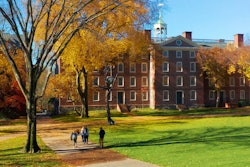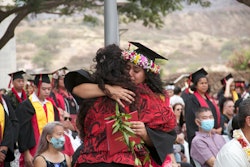The Asian and Pacific Islander American Scholarship Fund and the National Commission on Asian-American and Pacific Islander Research in Education (CARE) have secured $2 million in foundation grants to fund one of the largest research projects to explore Asian American and Pacific Islander (AAPI) college student success.
The funding announcement came late last month during the Asian and Pacific Islander American Scholarship Fund (APIASF) third annual education summit in Washington D.C. More than 200 people attended, including college and university presidents, scholars, and foundation leaders. APIASF and CARE announced the Partnership for Equality in Education through Research (PEER) project, a three-year $2 million initiative funded by The Kresge Foundation, USA Funds, and The Walmart Foundation.
Dr. Robert Teranishi, principal investigator for CARE, explained that the funding will address “the need for broader awareness about AANAPISIs and the need for research to play a role in understanding the capacity of AANAPISIs and the impact that they have on AAPIs.”
The primary purpose of PEER is to help realize the full degree-earning potential of the AAPI student community. PEER intends to support Asian American and Native American Pacific Islander Serving Institutions (AANAPISIs) by achieving greater institutional effectiveness, sharing resources for widespread AAPI student success, and obtaining more useful data about AANAPISIs to advocate for policies affecting AAPI student access and success in higher education.
Neil Horikoshi, APIASF president and executive director, told Diverse that, according to the 2010 census, “AAPIs are the most rapidly growing student population” in the U.S. In 1960, there were less than 1 million AAPIs in the U.S. As of 2010, there were more than 15 million. By 2050, the AAPI population is expected to approach 40 million. As a result, the proportion of AAPIs in the U.S. population has been rising and is expected to continue to rise. This shift in demographics is also reflected in higher education, where AAPI college enrollment is increasing at a high rate.
Consequently, organizations such as the Asian and Pacific Islander American Scholarship Fund (APIASF) and the National Commission on Asian American and Pacific Islander Research in Education (CARE) are working to address the obstacles facing AAPI students in higher education.
PEER will work collaboratively with De Anza College, City College of San Francisco, and South Seattle Community College, three AANAPISIs with a history of supporting AAPIs.




















